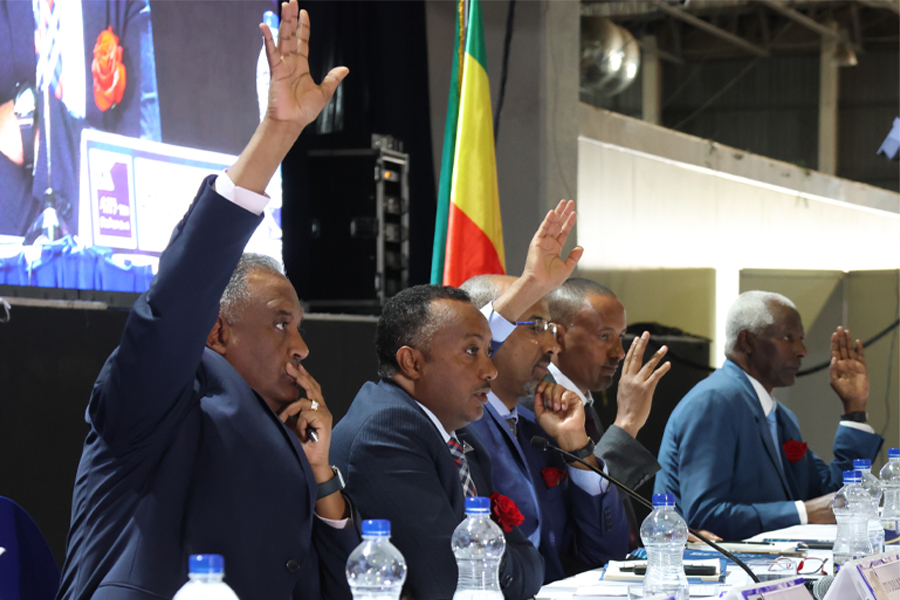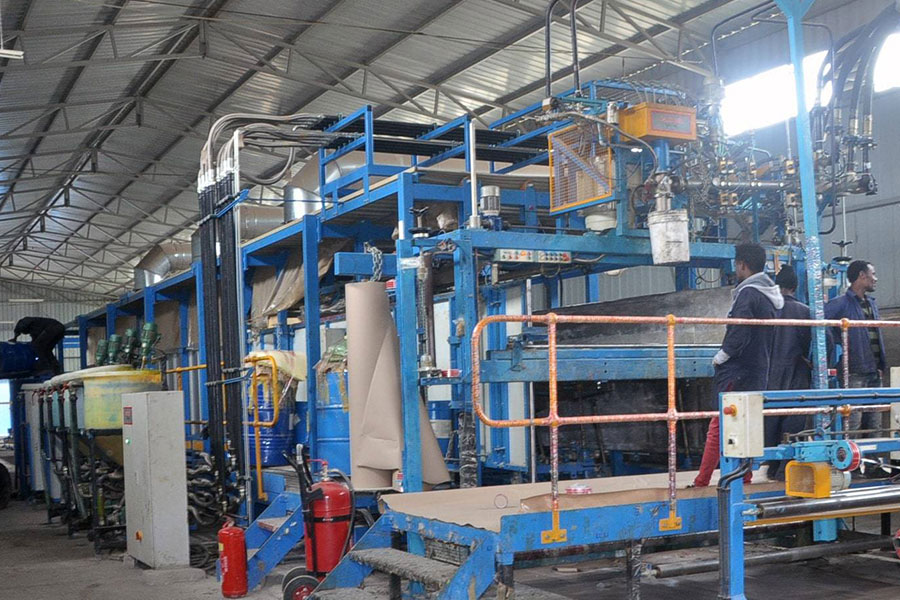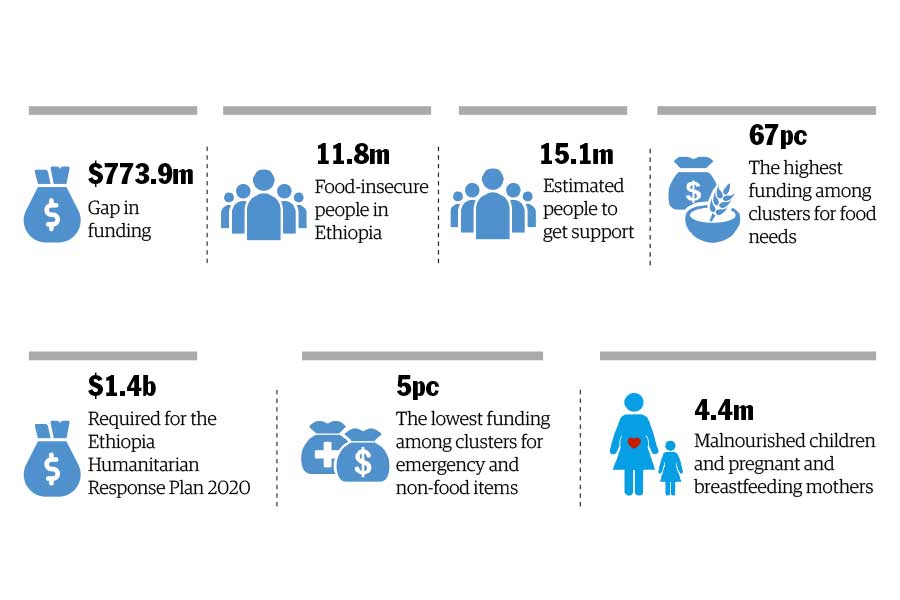
Radar | Jan 03,2021
Minister of Health Lia Tadesse (MD) has reversed her decision to terminate the contracts of thousands of medical professionals who joined the fight against the COVID-19 pandemic as the country’s healthcare system braced itself for a surge in patients two years ago. Over 6,000 health professionals had been assigned to 64 treatment centres.
Last month, Lia issued a contract termination notice to health workers who have served on a contract.
“Their contracts were terminated because the government ran out of funding,” said Mebratu Massebo (PhD), a senior advisor to Minister Lia and coordinator of the national COVID-19 task force.
Pandemic response efforts exerted significant pressure on federal coffers, to 82 million dollars, though over half the financing was sourced from the World Bank.
Last week, Lia extended the contracts for six more months.
Lia served as a state minister for Health before she was appointed as a minister two years ago, following over two decades in the health sector. She led the national health programmes under the Health Sector Transformation Strategy.
Her decision to reverse the termination came following the disbursement of a 195 million dollar grant from the World Bank two weeks ago to support the government’s attempts to reduce the impacts of the pandemic. It also coincided with a sharp spike in infection rates over the past month.
Zewdu Demissie, 30, is among the 70 medical professionals (25 general physicians and 35 nurses) assigned to Eka Kotebe General Hospital for the past two years. Initially built to serve as a psychiatric treatment facility, the hospital was transformed into a COVID-19 treatment centre shortly after the first case was detected in March 2020. It provides isolation, admission and intensive care for COVID-19 patients.
Zewdu graduated from Debre Brehan University in pharmacy and was among the first to respond to Minister Lia’s call for duty in early 2020.
“Although I was afraid at first, I’m happy to be part of the team providing critical care to patients in their hours of need,” he said.
His experience in the task force established for preventing the Ebola virus six years earlier served him well. Earning a monthly gross salary of 7,000 Br, Zewdu began his duty in the Hospital’s intensive care unit (ICU). This allowed him to put his passion into practice and, at the same time, earn a better income. Hospitals are required to cover overtime and hazard payments to out-workers, while the Ministry is responsible for paying their monthly salaries.
While overtime payment ranges from 5,000 Br to 7,000 Br a month, risk income may go to 15,000 Br.
Nonetheless, the income is paltry compared to the risks frontline health workers like Zewdu face. He has been admitted to medical facilities after testing positive for COVID-19 no less than three times in the two years since he was deployed to Eka Kotebe. He was devastated to hear the Ministry’s earlier decision to begin terminating contracts.
“Considering the sacrifices we made, we don’t deserve to be treated like this,” Zewdu told Fortune.
No less than 2,490 medical professionals like Zewdu have been admitted to health centres due to COVID-19. Nineteen of them lost their lives. Zewdu supervisors at the Hospital appreciate the assistance from the contract workers.
“They helped to ease the load,” said Natnael Bekuretsion (MD), medical director of the Hospital.
The Senior Advisor to Minister Lia also acknowledges the sacrifices they made.
“Their arrival helped hospitals and health centres to continue providing other medical services,” he said.
The contract extension comes as COVID-19 cases surge. In early May, Eka Kotebe General Hospital administrators announced they had no patients admitted for COVID-19 treatment. The Millennium Hall, which had been converted into a COVID-19 isolation and treatment centre with about 1,000 beds, stopped taking patients a year ago.
However, positive cases and deaths have been climbing since early June. Eka Kotebe has admitted 336 patients this month, more than triple the number from a month before. Close to half a million COVID-19 cases have been recorded in Ethiopia; the death toll reached 7,540 last week.
Although medical professionals like Zewdu are happy with the six-month contract renewal, uncertainty still looms over their heads.
“Were still worried about our prospects,” said Zewdu.
Mebratu claims the contract workers will likely find permanent employment at the health centres they have been working at. Over the past two years, 19 general physicians and 32 nurses serving on a contract basis were offered permanent employment at Eka Kotebe General Hospital. The remaining might not be so lucky.
“We don’t have any vacant positions,” said Tizita Mekonnen, director of human resources at Eka Kotebe.
Mebratu, the Minister’s advisor, says that many vacant positions are available in rural areas.
“But they don’t want to go there when we assign them,” he told Fortune.
PUBLISHED ON
Jul 09,2022 [ VOL
23 , NO
1158]

Radar | Jan 03,2021

Fortune News | Dec 19,2021

Viewpoints | Sep 11,2020

Fortune News | Mar 09,2020

Radar | Oct 20,2024

Radar | May 16,2020

Covid-19 | Sep 04,2021

Fortune News | Mar 27,2021

Fortune News | Oct 11,2020

Fortune News | Oct 08,2022

Dec 22 , 2024 . By TIZITA SHEWAFERAW
Charged with transforming colossal state-owned enterprises into modern and competitiv...

Aug 18 , 2024 . By AKSAH ITALO
Although predictable Yonas Zerihun's job in the ride-hailing service is not immune to...

Jul 28 , 2024 . By TIZITA SHEWAFERAW
Unhabitual, perhaps too many, Samuel Gebreyohannes, 38, used to occasionally enjoy a couple of beers at breakfast. However, he recently swit...

Jul 13 , 2024 . By AKSAH ITALO
Investors who rely on tractors, trucks, and field vehicles for commuting, transporting commodities, and f...

Sep 13 , 2025
At its launch in Nairobi two years ago, the Africa Climate Summit was billed as the f...

Sep 6 , 2025
The dawn of a new year is more than a simple turning of the calendar. It is a moment...

Aug 30 , 2025
For Germans, Otto von Bismarck is first remembered as the architect of a unified nati...

Aug 23 , 2025
Banks have a new obsession. After decades chasing deposits and, more recently, digita...